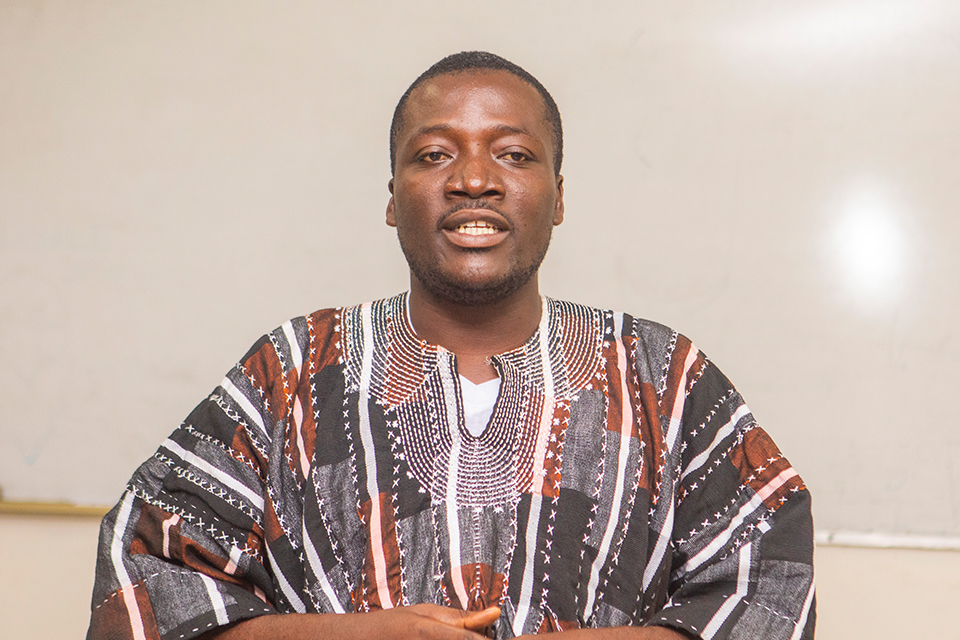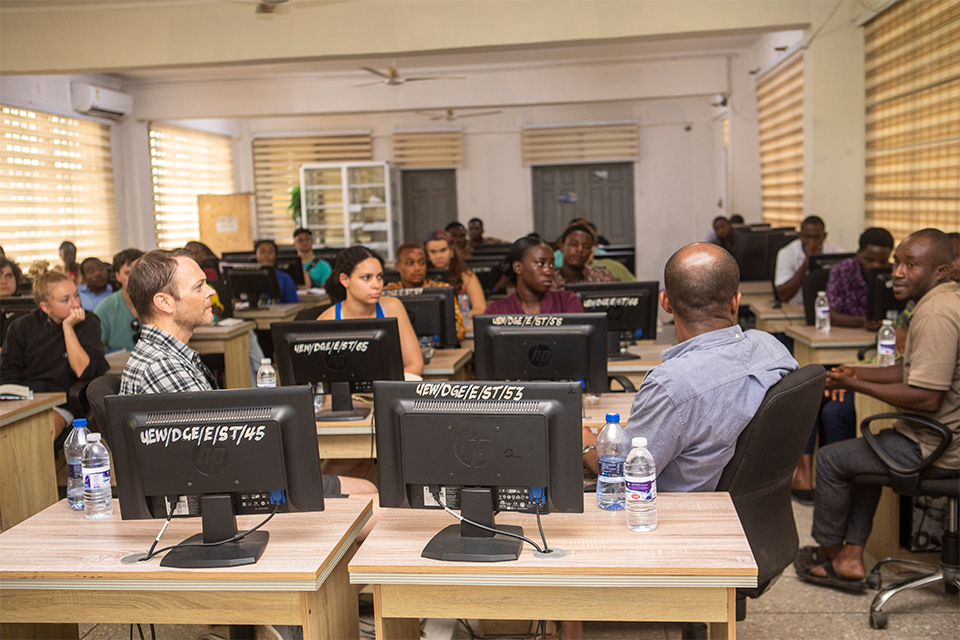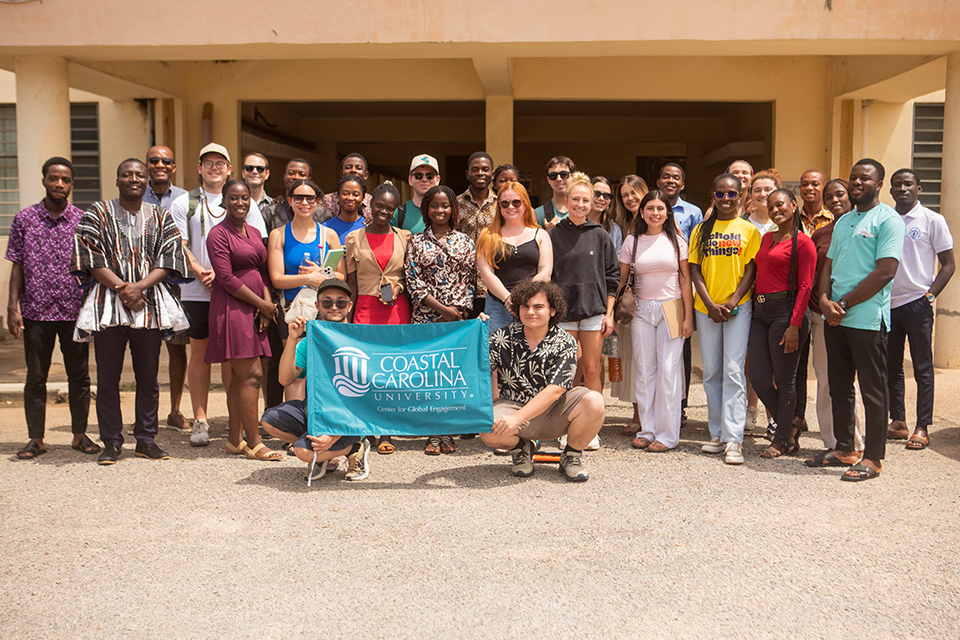DGE-UEW Discusses Africa's Geopolitics and Development Challenges with CCU

The Department of Geography Education (DGE) at the University of Education, Winneba (UEW), engaged in an insightful interaction with faculty and students from Coastal Carolina University (CCU) of the United States on Friday, 23rd May, 2025, at the North Campus of UEW.
The crucial interaction materialised from an academic exchange visit by the delegation from CCU.
Dr. Victor Owusu, a lecturer of the Department, guided the visitors through a comprehensive exploration of Africa's geopolitical dynamics, environmental vulnerabilities and socio-economic challenges, emphasising the urgent need for action on natural resource sustainability.

Dr. Owusu’s lecture wove together compelling narratives of Africa’s geographical diversity, economic paradoxes and the enduring impacts of colonialism. He emphasised that despite its abundant natural resources, Africa remains trapped in cycles of poverty and underdevelopment due to inadequate resource management, climate challenges and geopolitical instability.
“Africa is the second-largest continent in the world; however, it continues to face developmental setbacks stemming from its colonial past, which are further exacerbated by contemporary systemic challenges,” he stated.
Dr. Owusu provided a comprehensive geographic analysis of the continent, contrasting the fertile, resource-rich yet underdeveloped sub-Saharan region with the more economically stable North Africa. He underscored the critical role of areas such as West Africa—where Nigeria alone represents approximately 50% of the region's population and is now its largest economy—in influencing the continent's socio-economic trajectory.
He also spoke extensively about the Sahel region, emphasising its growing global attention due to ongoing political unrest, desertification, and the severe consequences of climate change. “The Sahel has become a symbol of Africa’s vulnerability — beset by insurgencies, fragile states and unpredictable weather patterns,” he noted.

Delving into Ghana's context, Dr. Owusu criticised the country's overreliance on raw material exports and the mismanagement of natural resources. He highlighted small-scale gold mining and offshore oil drilling as significant contributors to environmental degradation, warning of an impending danger if sustainability is not prioritised.
“Our coastal communities are no longer able to fish as they once did. The encroachment of multinational oil companies has not only displaced traditional livelihoods but has also created a complex tug-of-war over ocean spaces,” he explained, referencing the transition from traditional fishing to oil-dominated oceanic activities.
He referenced the decline in Ghana’s agricultural sector, noting the exodus of youth from farming to urban service jobs due to inadequate investment, unpredictable rainfall and land degradation. “Agriculture has become more of a survival mechanism than a viable economic engine,” he said.
Dr. Owusu stressed the urgent need for visionary leadership, accountability and long-term policymaking. He advocated for reinvestment in Ghana's industrial base to decrease reliance on imports and foreign-owned service sectors.

In a poignant reflection on Ghana’s legacy of independence, he lamented the unfulfilled visions of Osagyefo Dr. Kwame Nkrumah: “Ghana was once a shining star in Africa. Today, corruption and ineffective economic transformation have hindered our progress.”
The lecture concluded with a compelling call to action. Dr. Owusu urged Ghana and other African nations to learn from the mistakes of countries like Nigeria, where oil wealth has not resulted in widespread development. “We must prioritise sustainability as a national imperative. If we fail to do so, our resource wealth could ultimately lead to our downfall,” he cautioned.
UEW's platform continues to foster critical scholarly engagement on national and continental issues, affirming its role in shaping informed, forward-thinking citizens.












